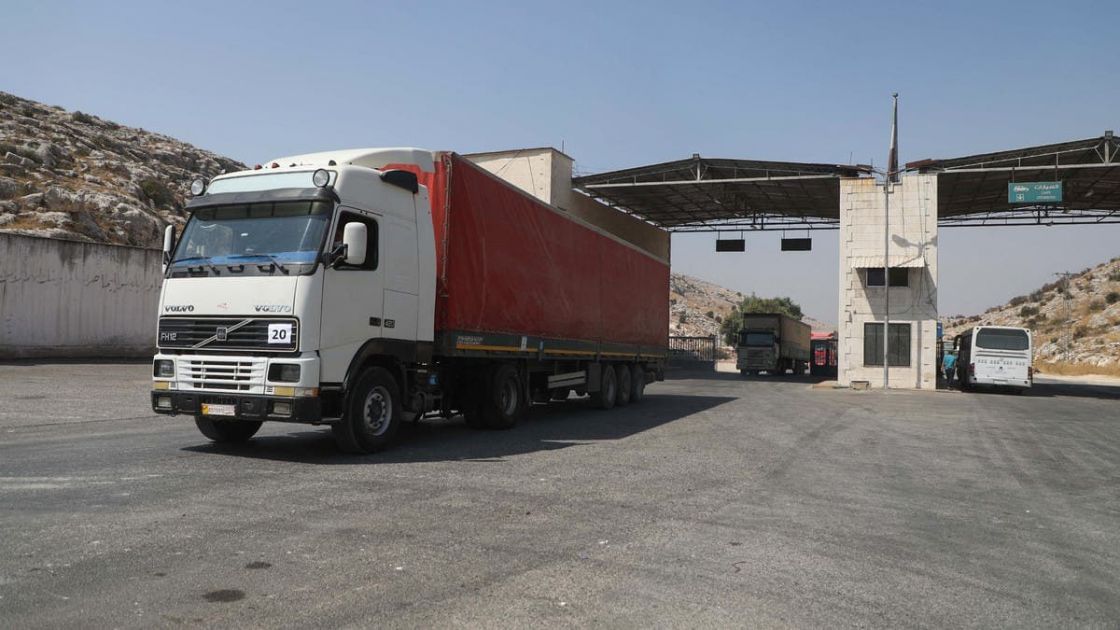- Editorials
- Posted
The Crossings, Between the Humanitarian and the Political
On the tenth of this month, the UN Security Council members will discuss the extension of Resolution 2533 regarding the border crossings. In practice, the discussion will determine the fate of the remaining border crossing, which is Bab al-Hawa crossing.
The first thing to say on the issue is that the highest priority should be for the aid, on which millions of Syrians livelihoods depend, to continue reaching them, and if the mechanisms currently in place are stopped, there should be clear, tangible, and rapid alternatives.
The second issue to which attention should be drawn is that there is an intentional exaggeration in amplifying the battle about the crossings, especially in exaggerating the consequences that could result therefrom. There is no doubt that among the Syrian, regional, and even international parties, there are those who are not at all pleased by the prospects of a Russian-American consensus, as this means getting closer to a solution and thus to change, and those rely on the fact that if a dispute occurs on this issue, it will allow for the creation of an atmosphere that undermines any consensus that took or will take place. This matter is far from reality, as we mentioned in Kassioun’s last editorial, which emphasized that reaching a solution in Syria has become “a necessity for Russia and the US alike, each for reasons differing from the other’s to the point of contradiction.”
In addition to the previous two points, the following should be noted:
First: The bulk of the humanitarian aid going to the northwest has decreased significantly during the past two years, almost since the Caesar Act went into effect, despite the continued operation of Bab al-Hawa crossing. The direct and obvious reasons for this are the reduction of aid by the West on the one hand, and the effects of the Caesar Act itself, which constrained many types of economic movements that were taking place, whether through external exchanges or through exchanges among the various regions of Syria.
Second: By using the humanitarian issue and the UN to cover up, the US can deliver (out of Astana’s sight and away from bearing direct responsibility) what it wants to deliver to al-Nusra. US officials, including the top one responsible for the Syrian file for more than two years, that is James Jeffrey, have expressed their quest to legitimize al-Nusra and remove it from the lists of designated terrorist organizations.
Third: The dual Western policy related to the crossings, which insists on the cross-border crossings and stands firmly against the crossings between the Syrian regions, is a policy that clearly aims to reinforce and deepen the de facto partition.
The priority should be to reach a formula that allows the delivery of humanitarian aid and liberate it from the political exploitation, the largest part of which goes into the pockets of Syrian warlords from all sides. The most important form of aid is to end the state of economic and political dismemberment of the country.
In any case, there should be no interruption in an existing aid path without a clear and practical alternative, which Astana can push towards, in parallel with the need to not continue exploiting the aid issue to keep people in constant need for the aid.
That is, the crisis should not continue, nor should its solution continue to be prevented through politically exploiting the aid issue, as is done especially by preventing the termination of an organization such as al-Nusra by supporting it, covering it up, and trying to whitewash it, in parallel with the intensification of Western sanctions on Syrians regardless of which part of Syria they live.


